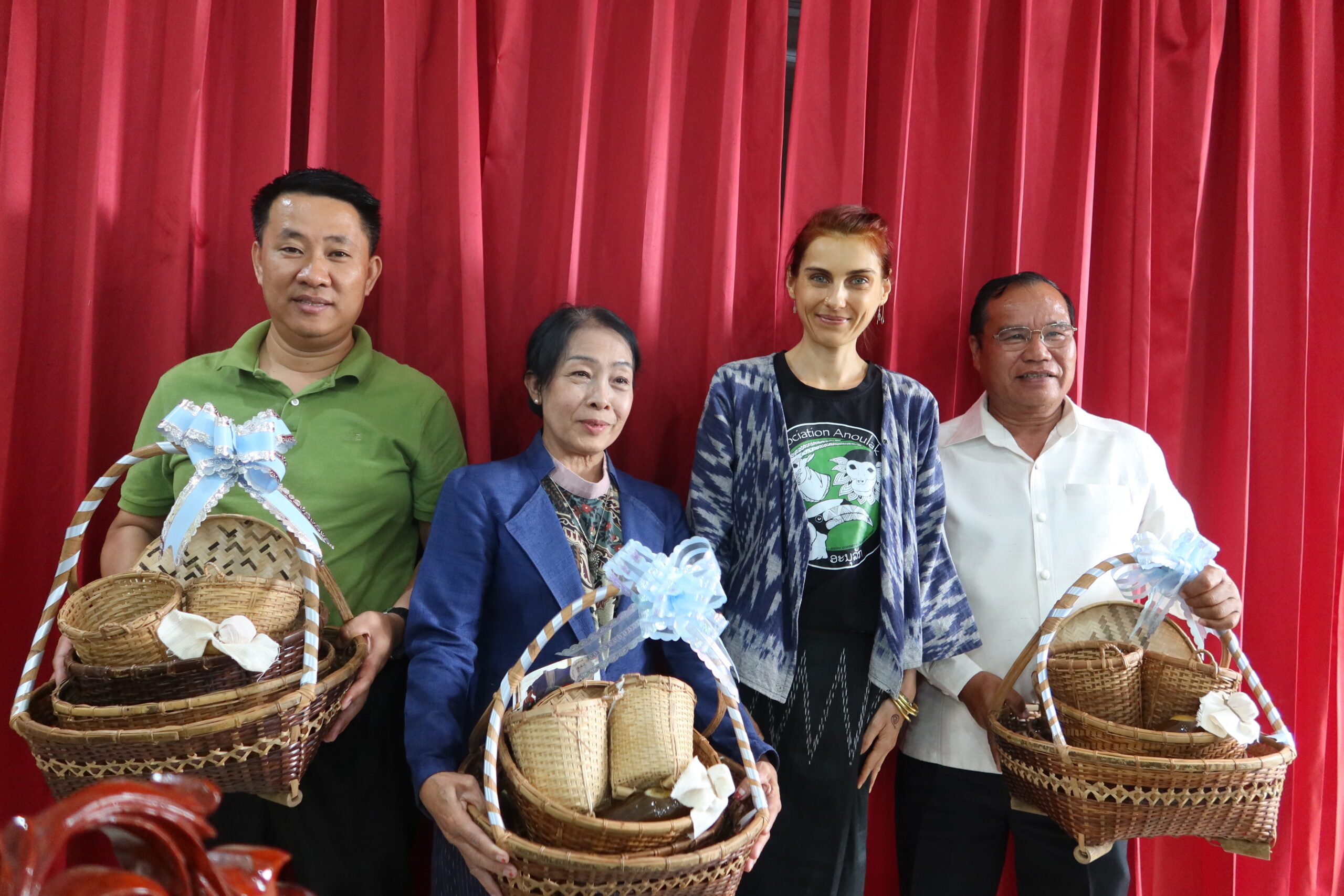
We gather with Government partners for our 2023 mid-year activity progress reporting meeting
August 3, 2023
An intimate interview with Camille, founder and director of Anoulak, for “World of Women”
August 17, 2023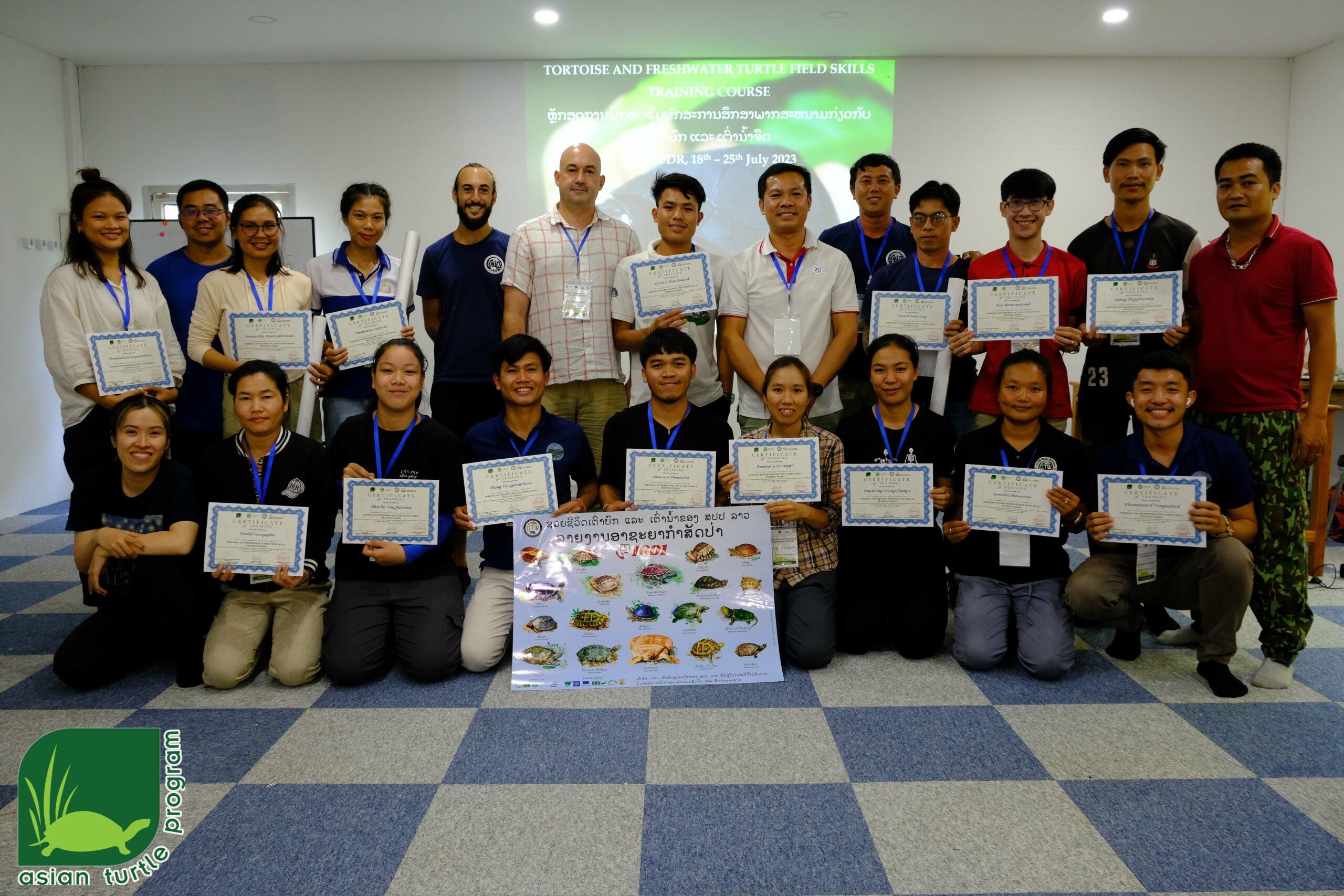
From 18 to 25 July 2023, Ms. Keo (Wildlife Research Fieldwork officer at Association Anoulak) was selected to participate the annual “Tortoise and Freshwater Turtle Field Skills Training Course” implemented by The Asian Turtle Program (ATP) of Indo-Myanmar Conservation (IMC). The course is conducted in collaboration with the Laos Conservation Trust for Wildlife (LCTW) and the National University of Laos (NUOL) under a Critical Ecosystem Partnership Fund (CEPF)/IUCN grant for IMC. In the week-long course, the 15 participants (Lao students, researchers, conservationists selected through a competitive application process) were provided with practical skills and experience relating to research and conservation of turtles through a combination of classroom instructions and field exercises.
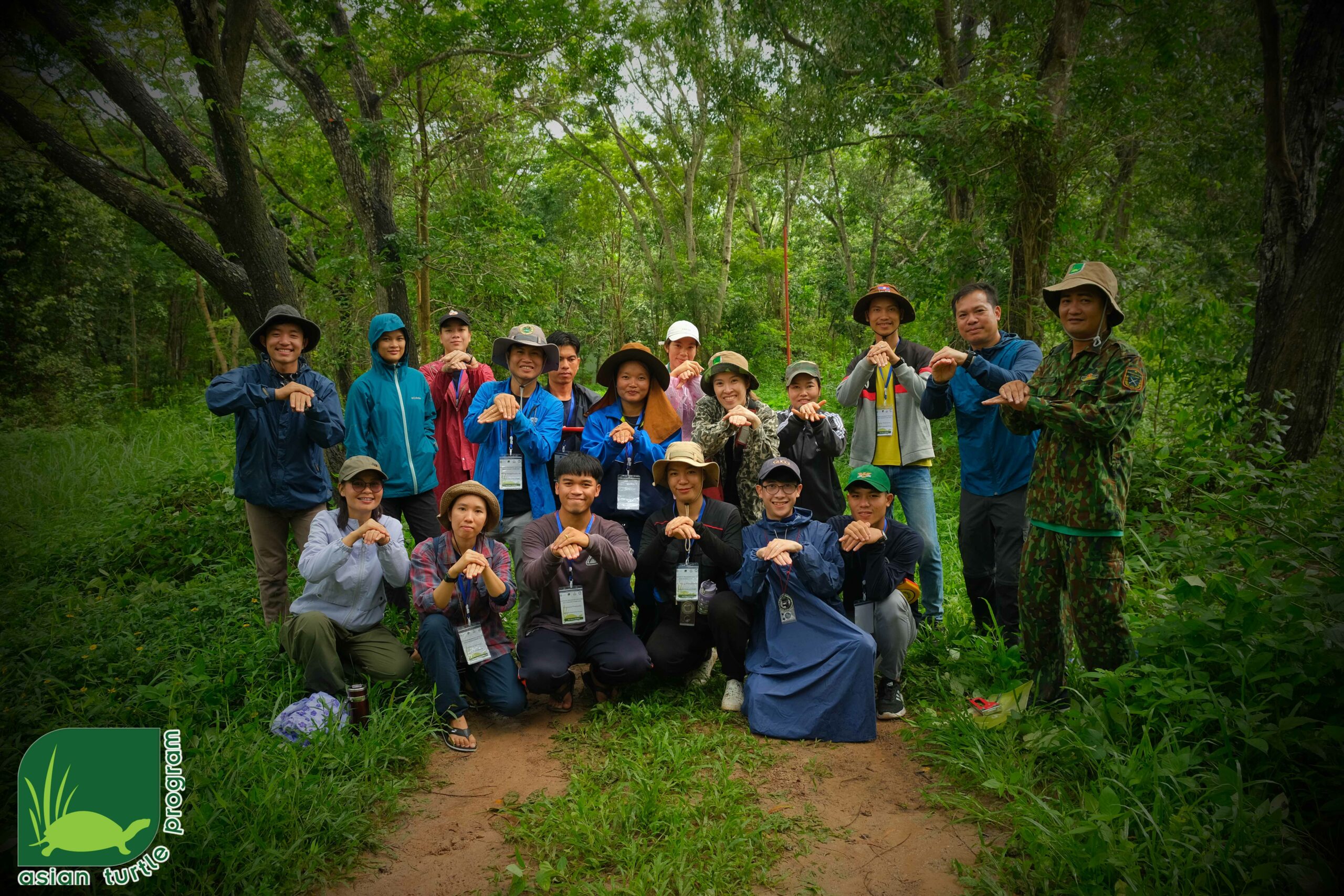
Participants of the Tortoise and Freshwater Turtle Field Skills Training Course, doint the turtle pose! July 2023 at the Lao Conservation Trust for Wildlife. Photo credit: ATP/IMC/CEPF/IUCN
The course’s participants had the opportunity to:
- Gain knowledge on tortoise & freshwater turtle identification and their conservation status in Laos PDR
- Gain more insights on tortoise & freshwater turtle biology, ecology and behaviour
- Obtaining new field research skills, including surveying, animal handling and data collection focusing on tortoise & freshwater turtle
- A chance to complete a short research project following the course
The first annual Tortoise and Freshwater Turtle Field Skill Training Course was held by ATP in 2005 at the Turtle Conservation Center in Vietnam for university students and rangers from Vietnam. This course has been subsequently held every year since and has travelled to Cambodia, Laos and Myanmar. The course has been run for a few years in Laos, where a selection of Lao students, researchers and conservationists come together to learn about tortoises and freshwater turtles and their conservation.
The Asian Turtle Program (ATP) is a program under the Indo-Myanmar Conservation, a UK registered charity. ATP is based in Vietnam, with most of its research and conservation work implemented in Vietnam. ATP was established during the development of the Turtle Conservation Centre (TCC) of Cuc Phuong National Park, Ninh Binh province, Vietnam. Their mission is to conserve Asia’s tortoises and freshwater turtles by conducting research, protecting habitats, raising awareness and building expertise. To learn more about them visit their websites: The Asian Turtle Program (ATP) of Indo-Myanmar Conservation (IMC).
Association Anoulak is grateful for giving this unique training opportunity to Ms. Keo!
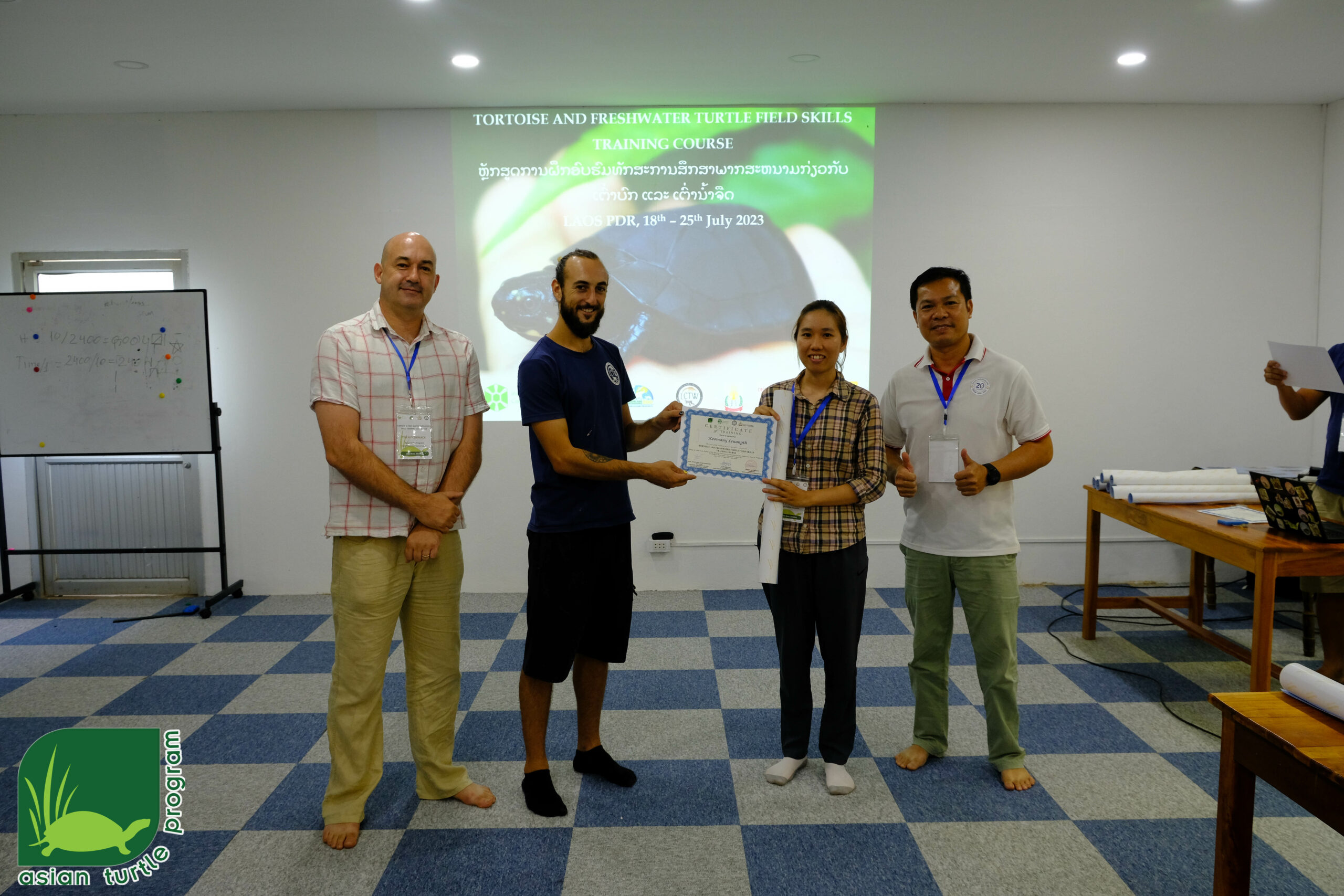
Ms. Keo, Wildlife Research Fieldwork officer at Association Anoulak, receiving her certificate of attendance from the Trainers. Photo credit: ATP/IMC/CEPF/IUCN
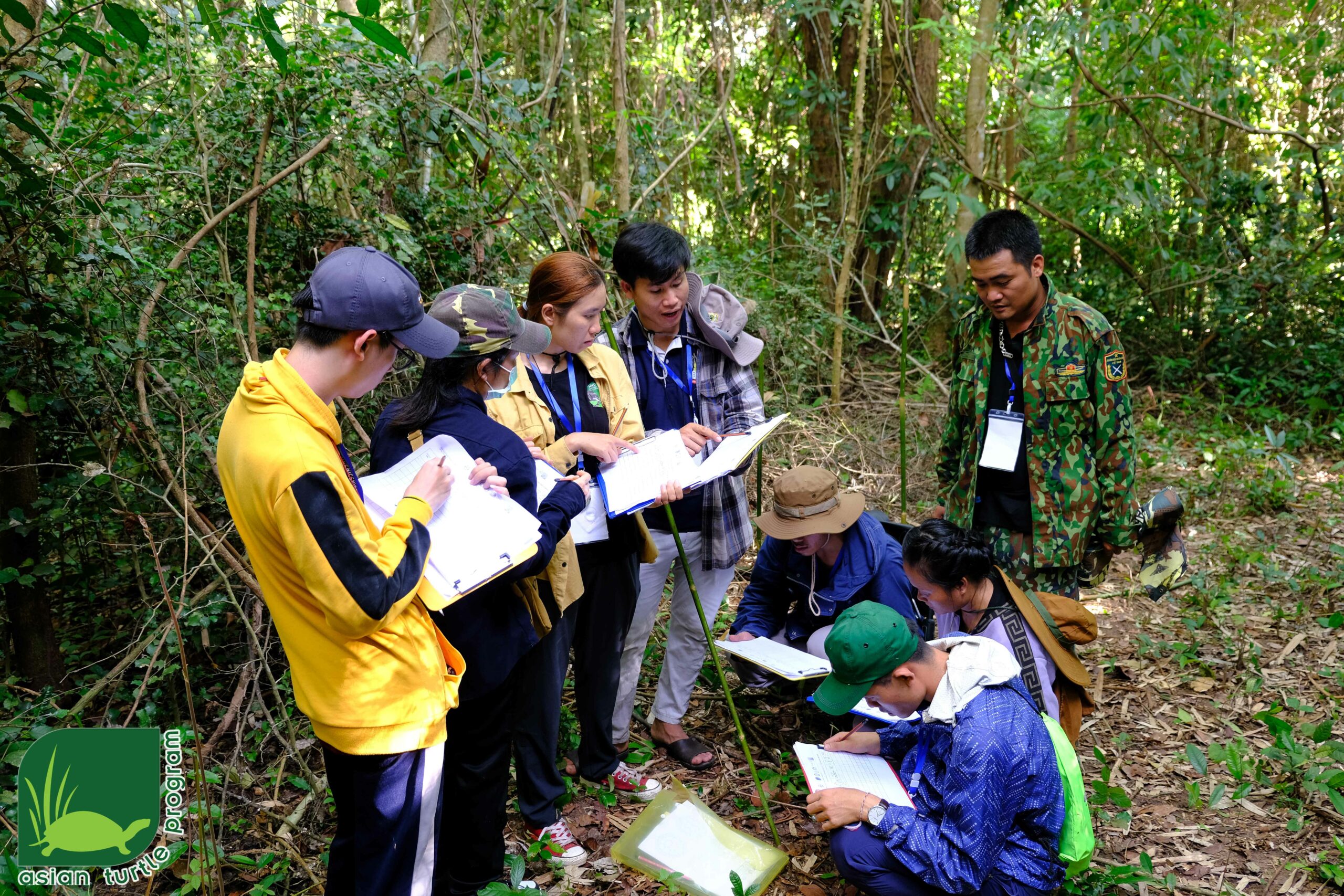
Learning and practicing field navigation with maps, GPS, compasses. Photo credit: ATP/IMC/CEPF/IUCN
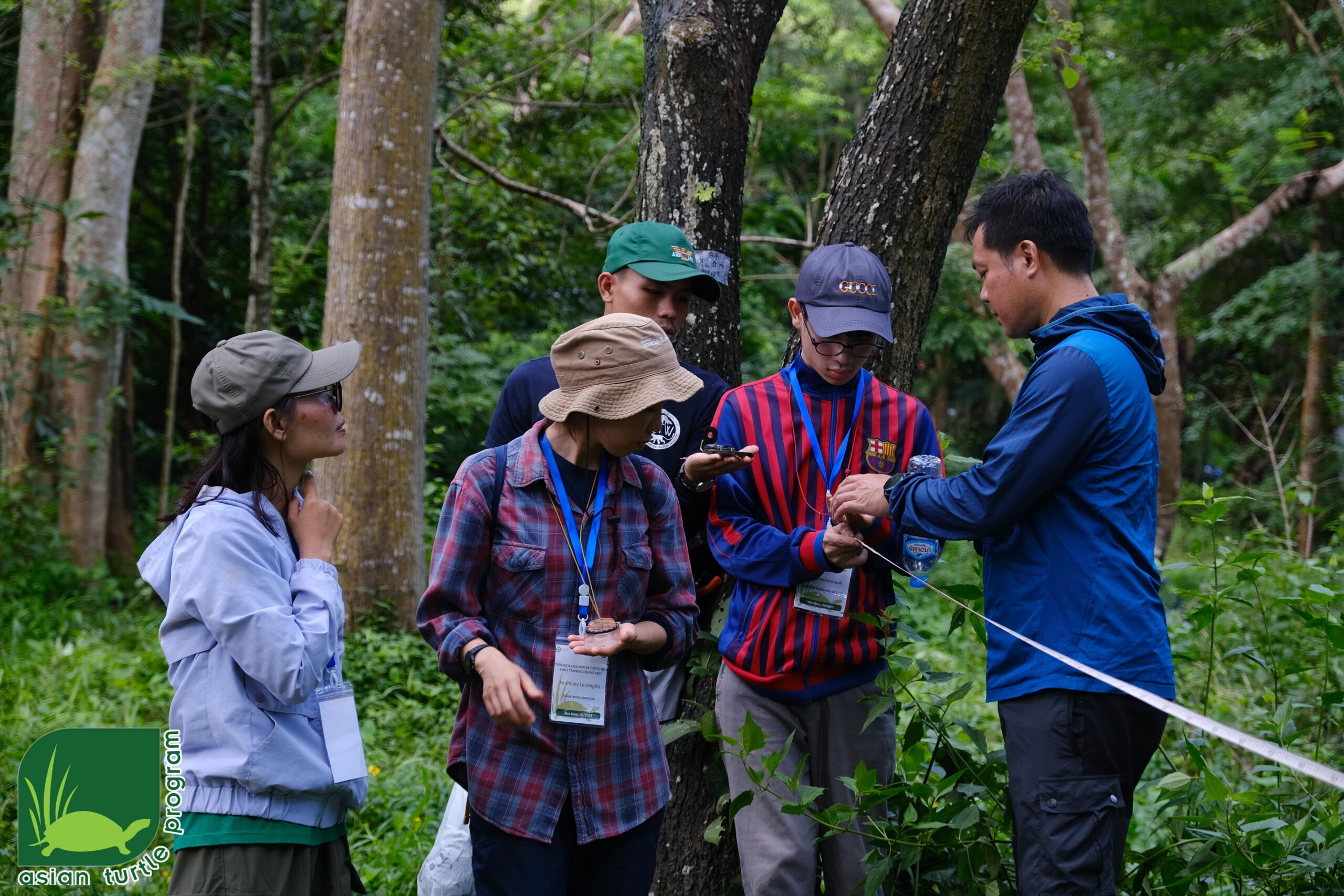
Learning and practicing field navigation with maps, GPS, compasses. Photo credit: ATP/IMC/CEPF/IUCN
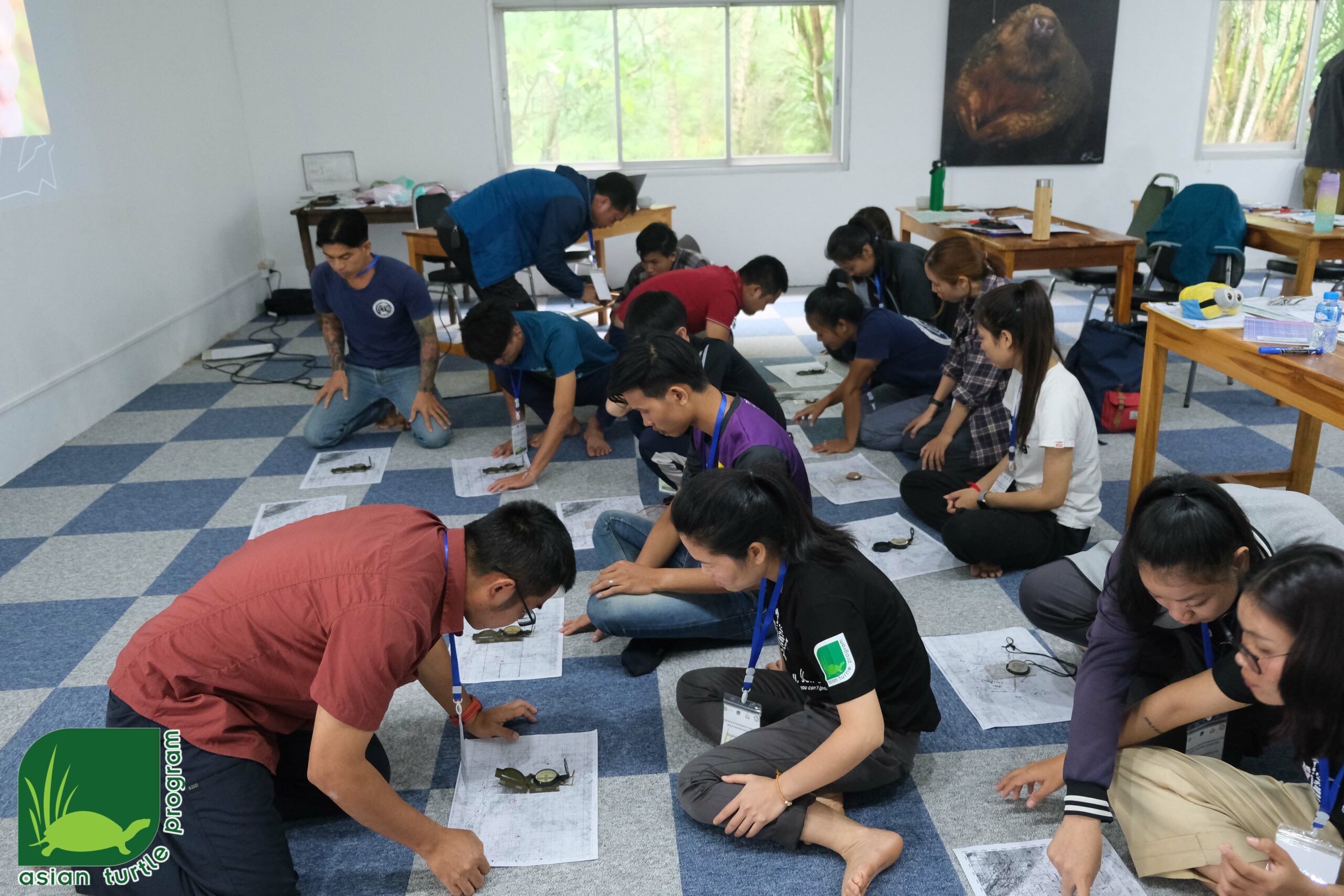
Learning and practicing field navigation with maps, GPS, compasses. Photo credit: ATP/IMC/CEPF/IUCN
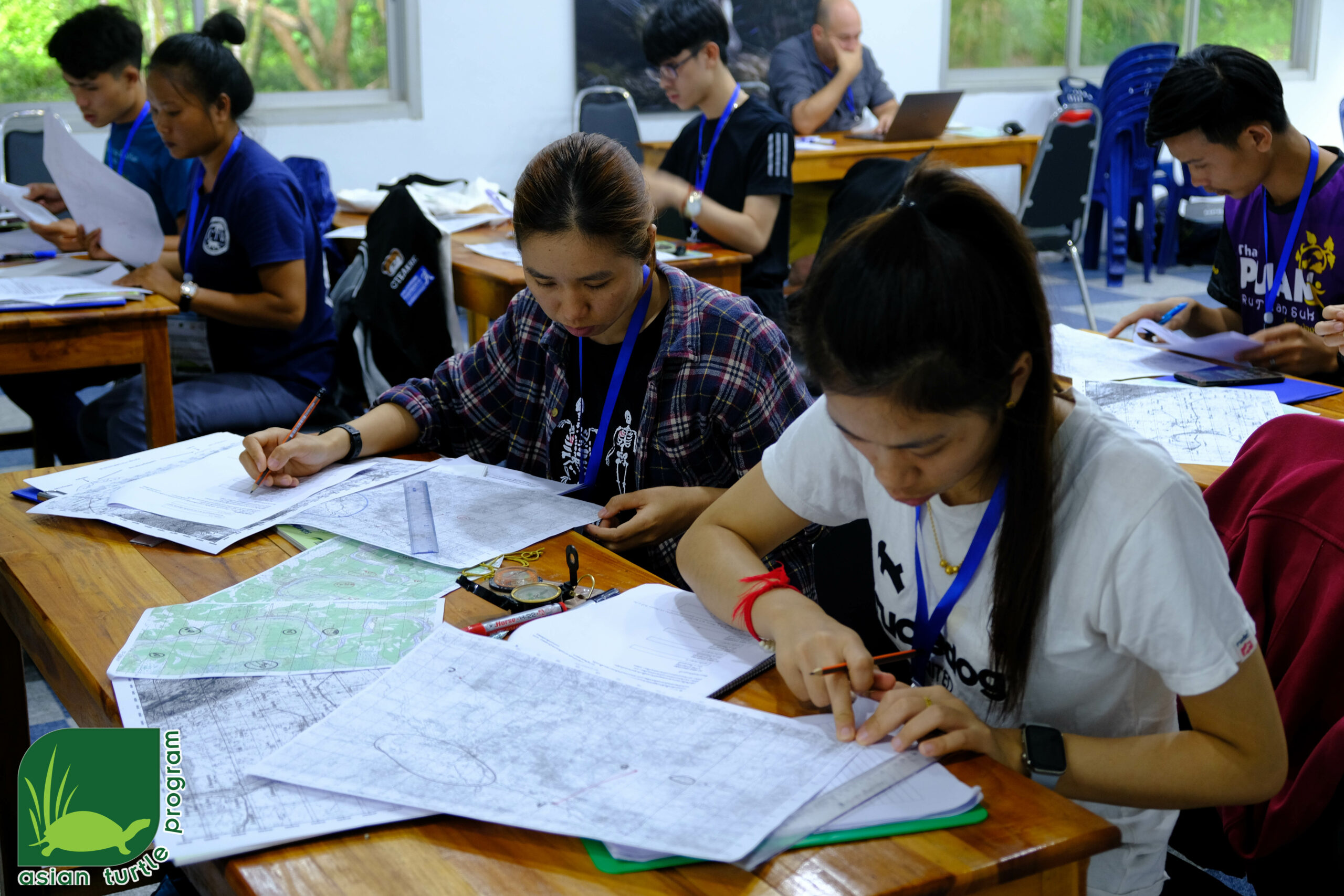
Learning and practicing field navigation with maps, GPS, compasses. Photo credit: ATP/IMC/CEPF/IUCN
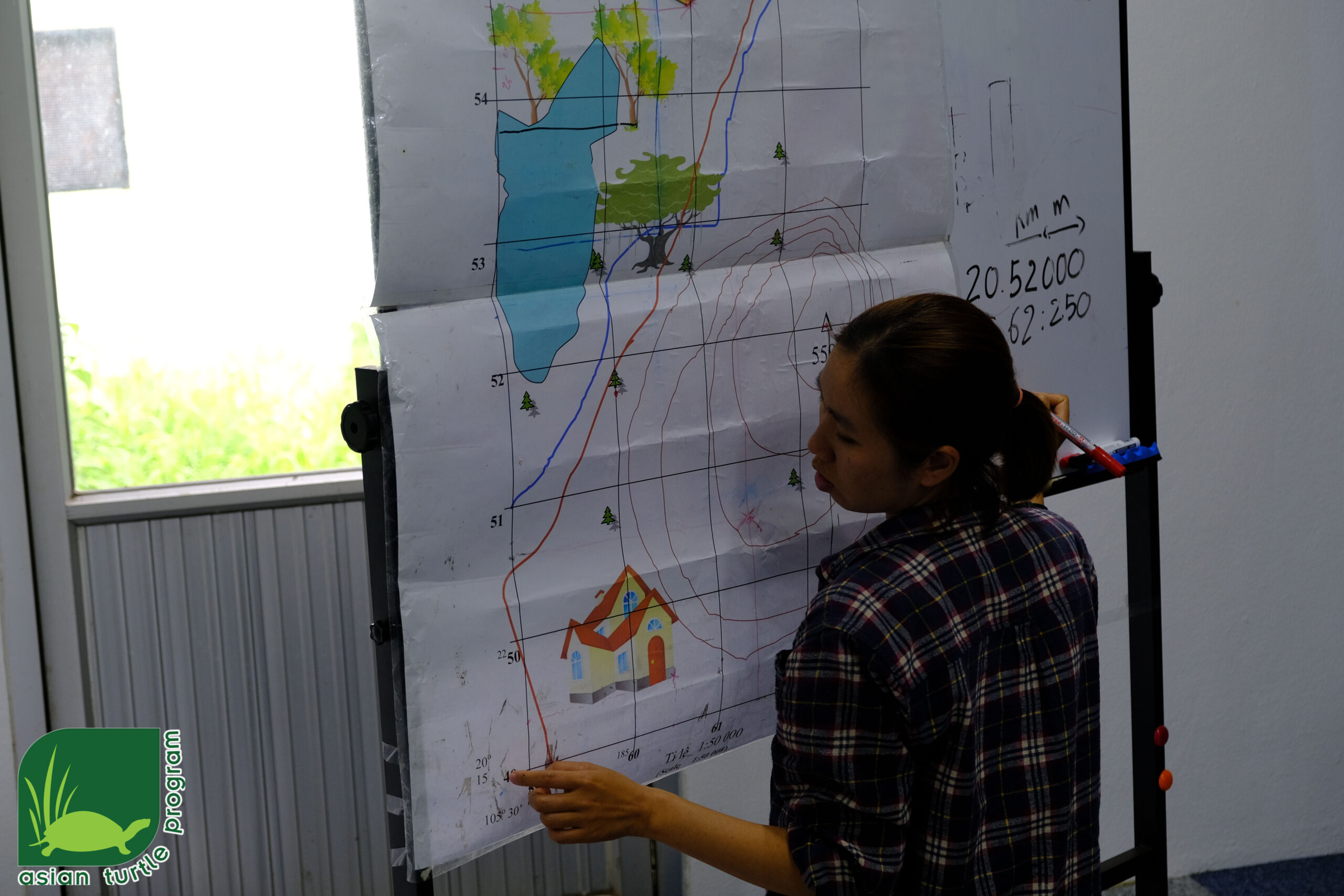
Learning and practicing field navigation with maps, GPS, compasses. Photo credit: ATP/IMC/CEPF/IUCN
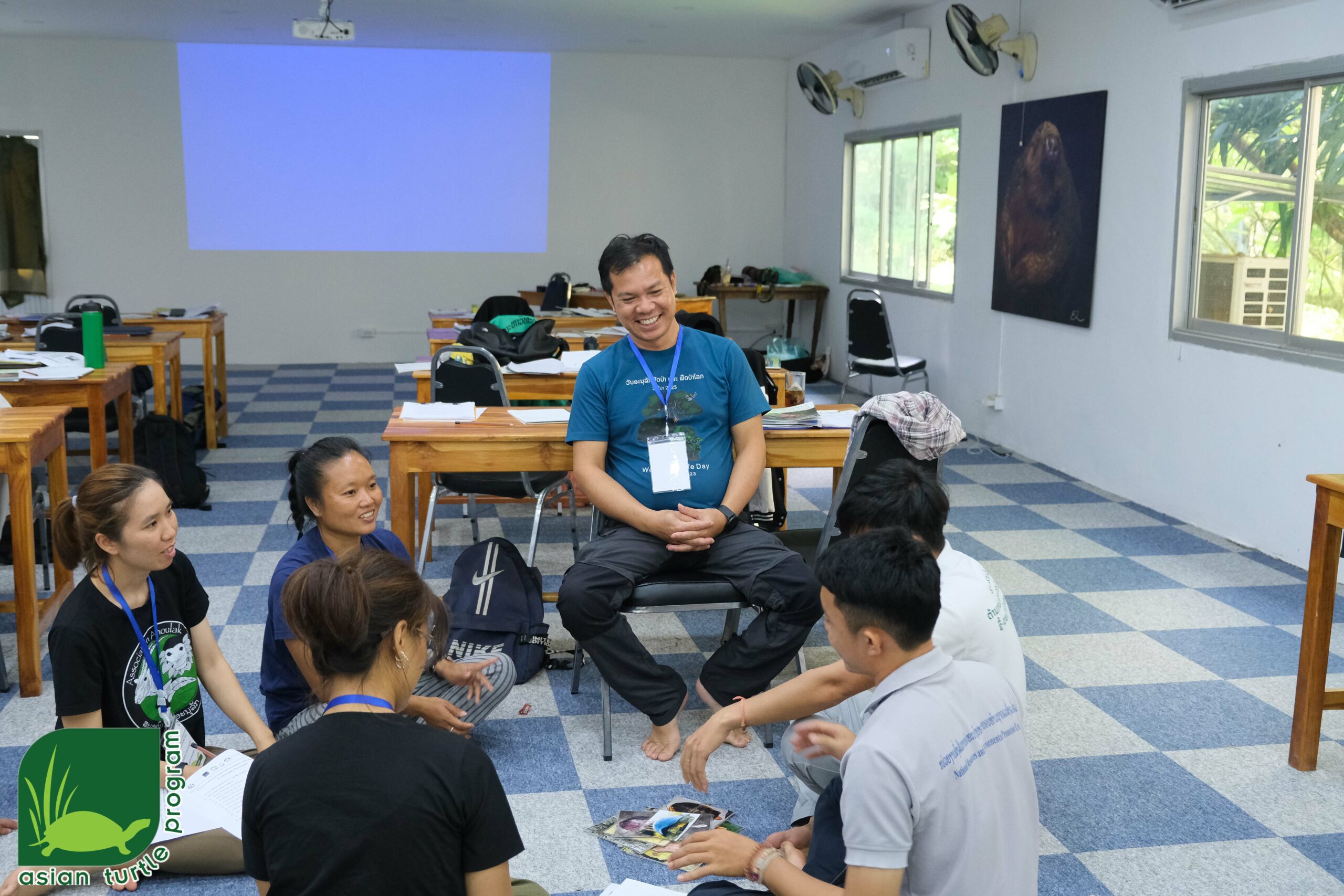
Methods of collecting information through interviews. Photo credit: ATP/IMC/CEPF/IUCN
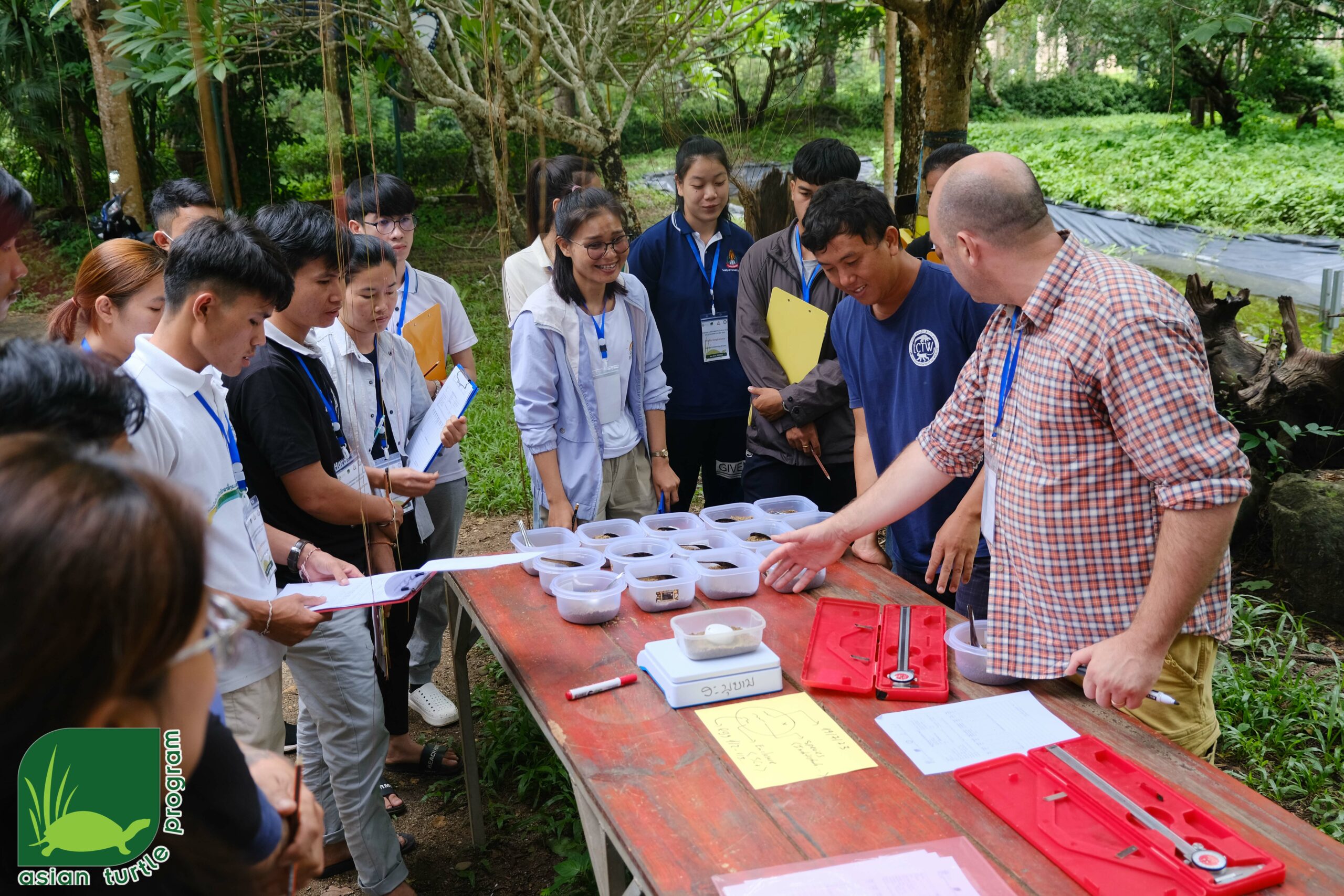
Learning about turtle physiology and ecology, including Nesting behaviour of turtles, egg dynamics and handling. Photo credit: ATP/IMC/CEPF/IUCN
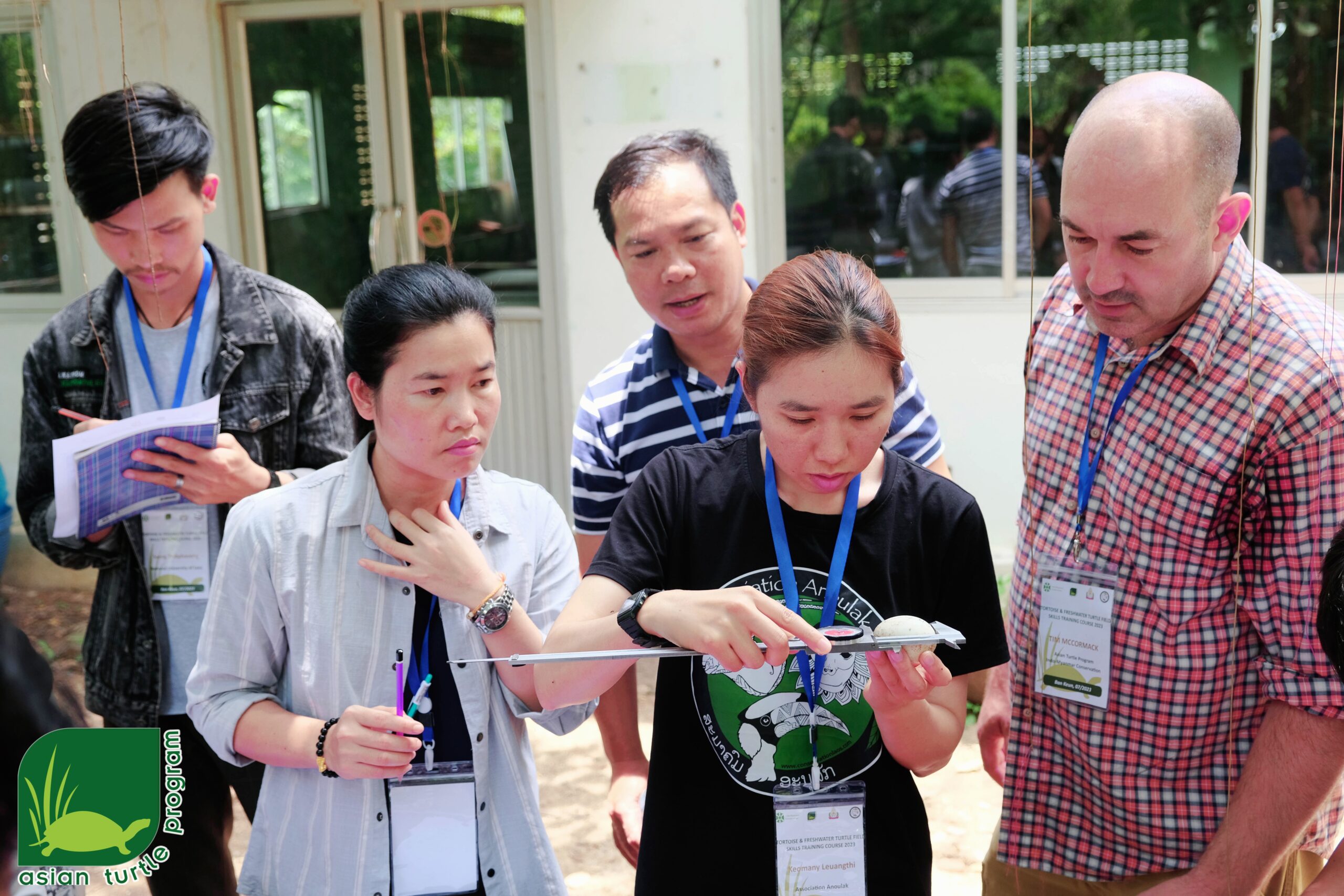
Photo credit: ATP/IMC/CEPF/IUCN
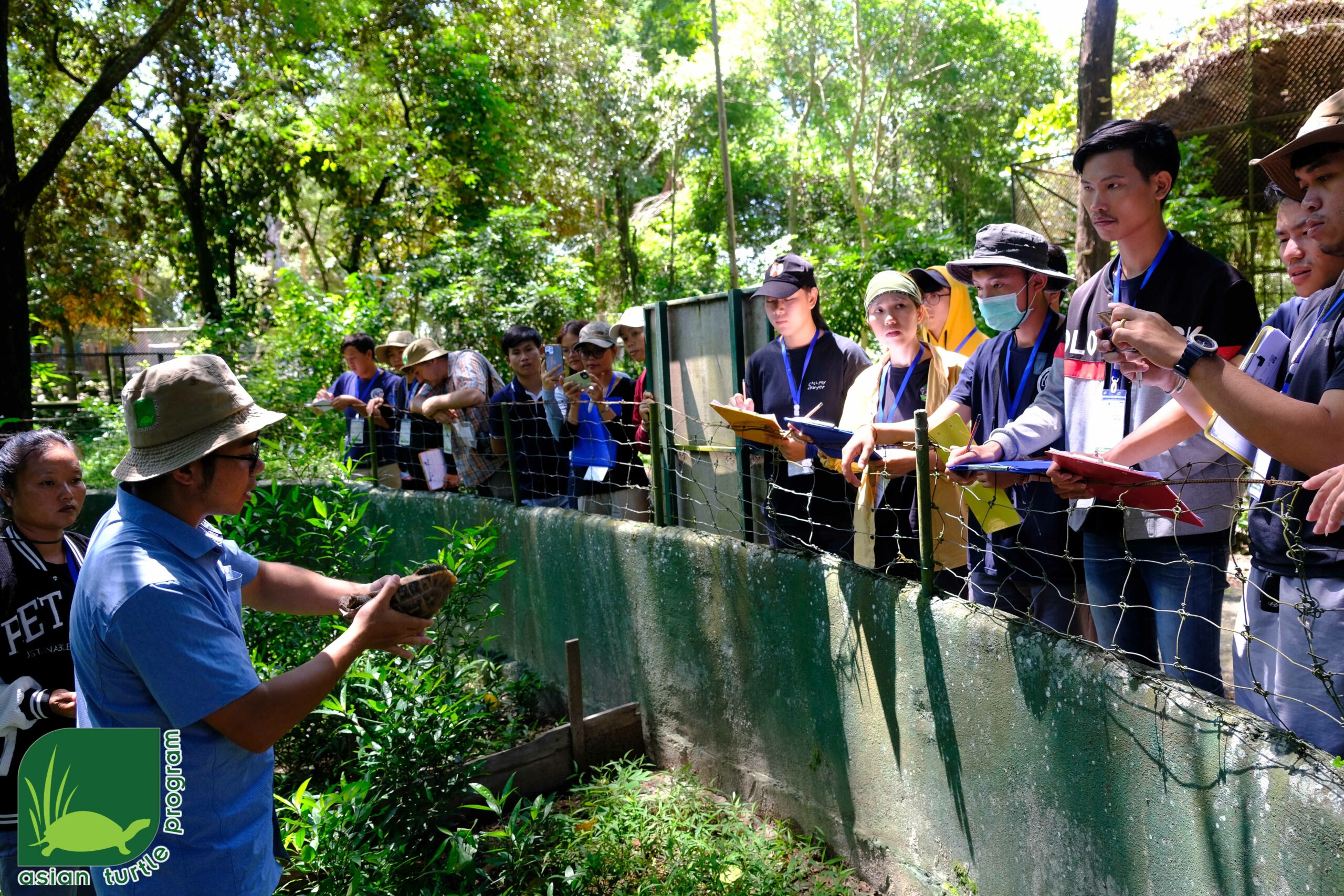
Learning about turtle and tortoise behaviour, morphology. Photo credit: ATP/IMC/CEPF/IUCN
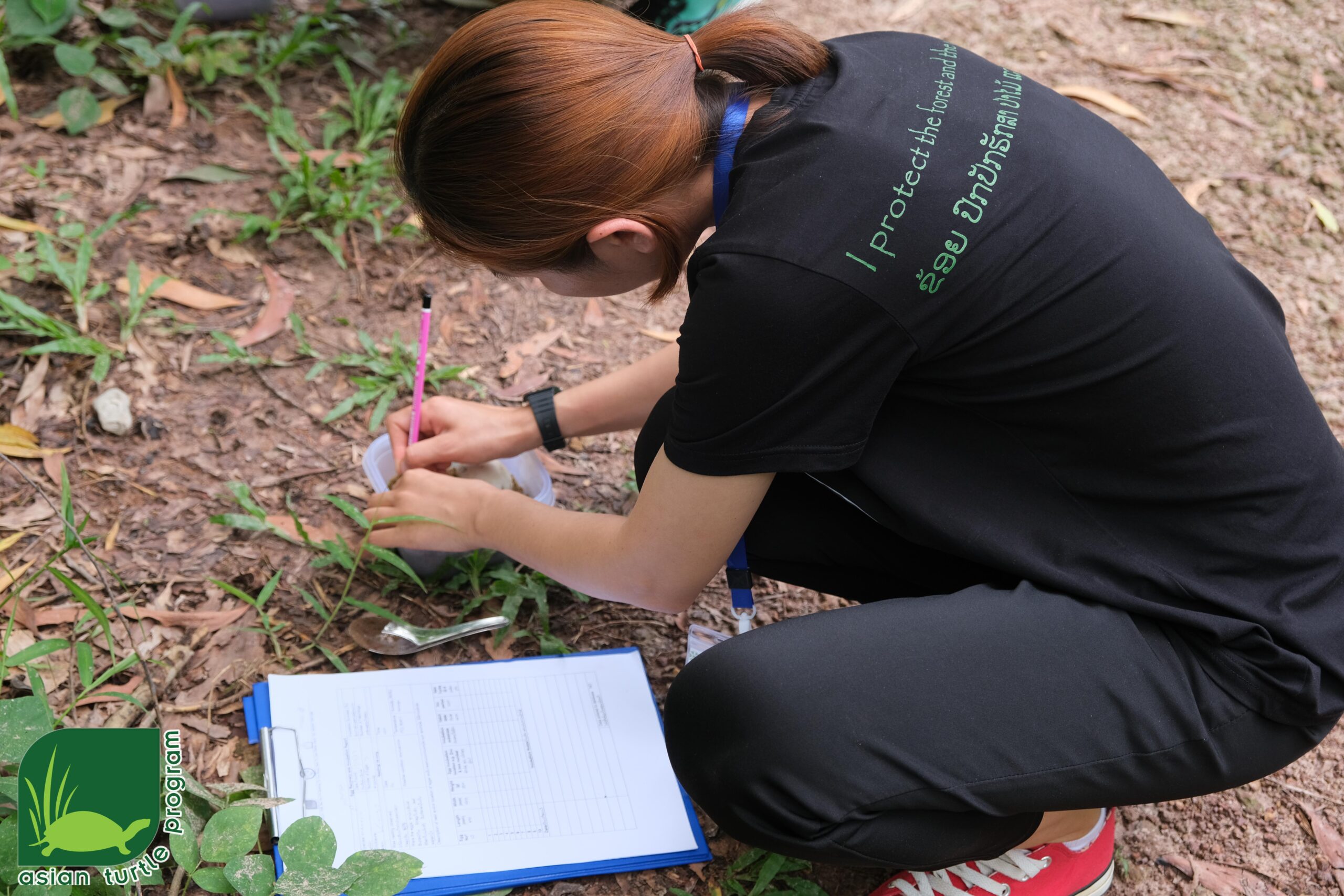
Photo credit: ATP/IMC/CEPF/IUCN
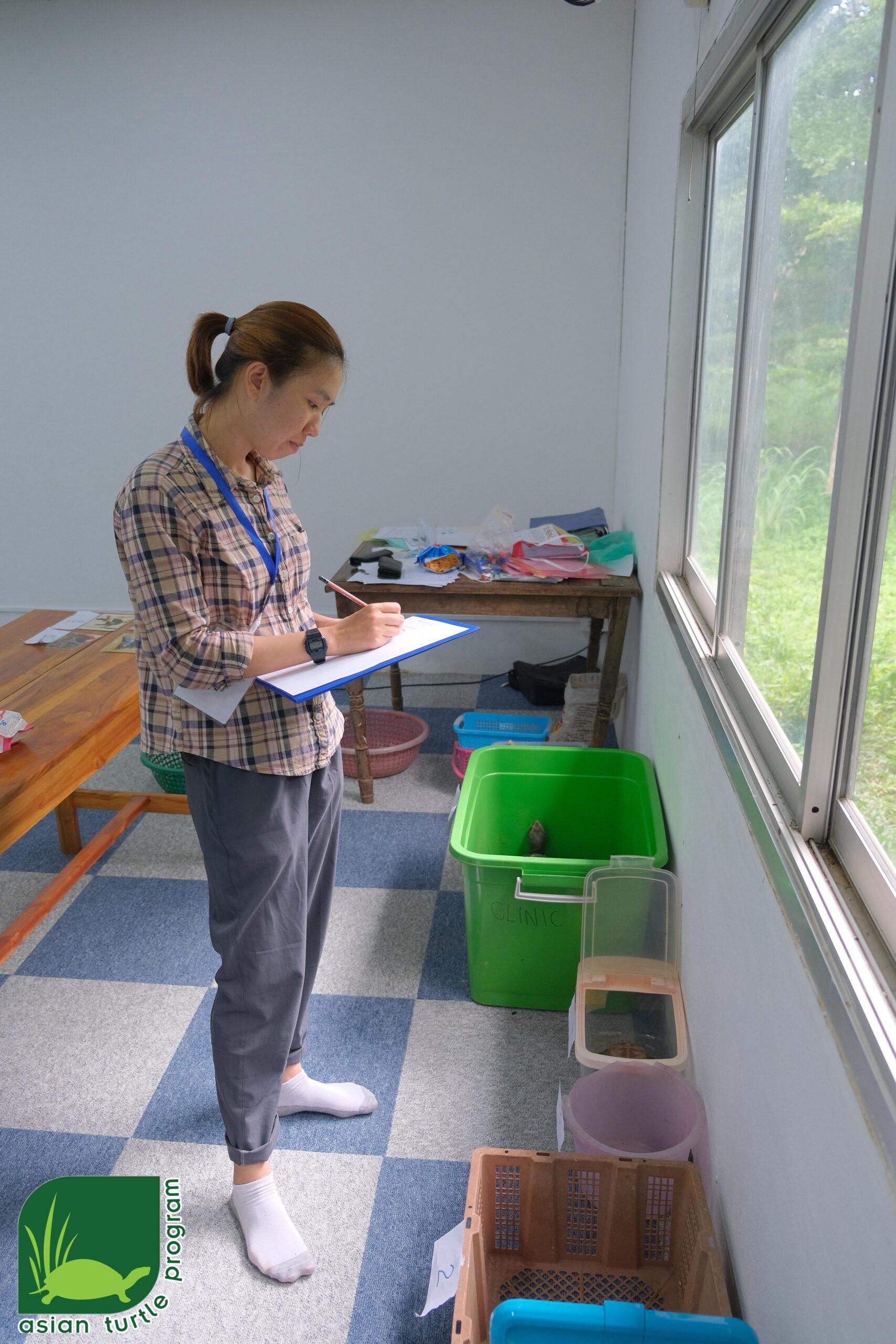
Photo credit: ATP/IMC/CEPF/IUCN
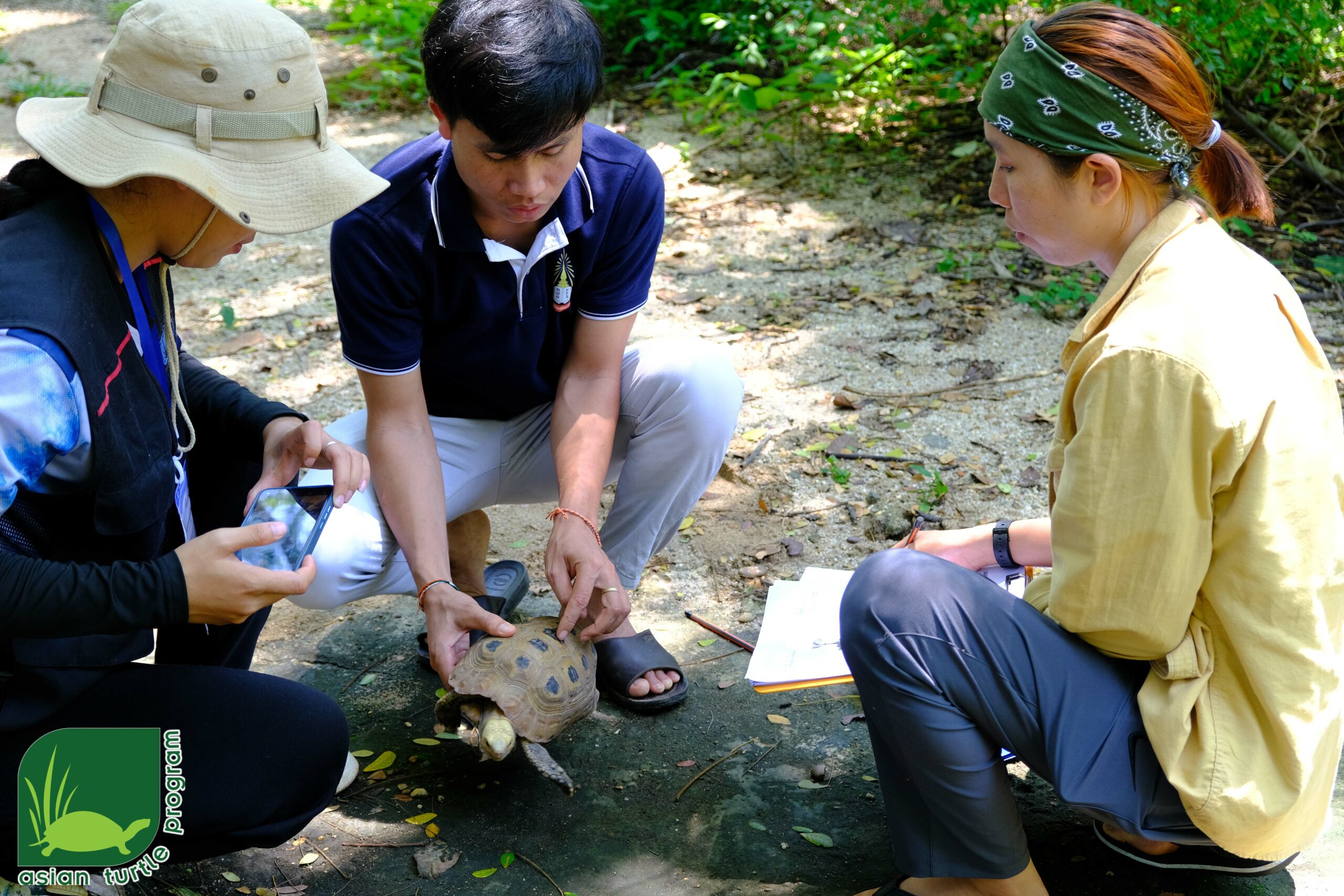
Learning about tortoise morphology and species identification. Photo credit: ATP/IMC/CEPF/IUCN
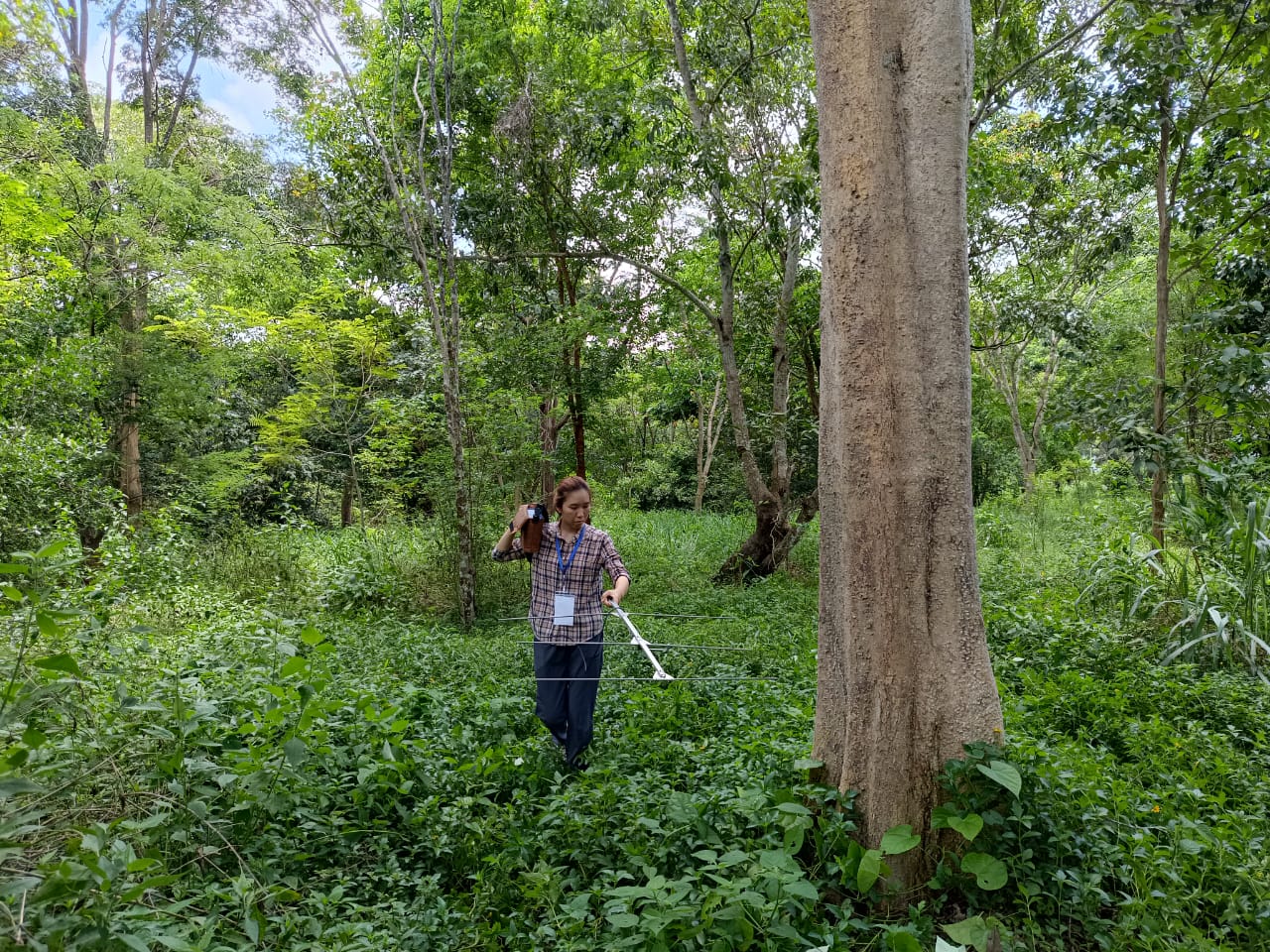
Radio telemetry tracking practice. Photo credit: Keomany L.
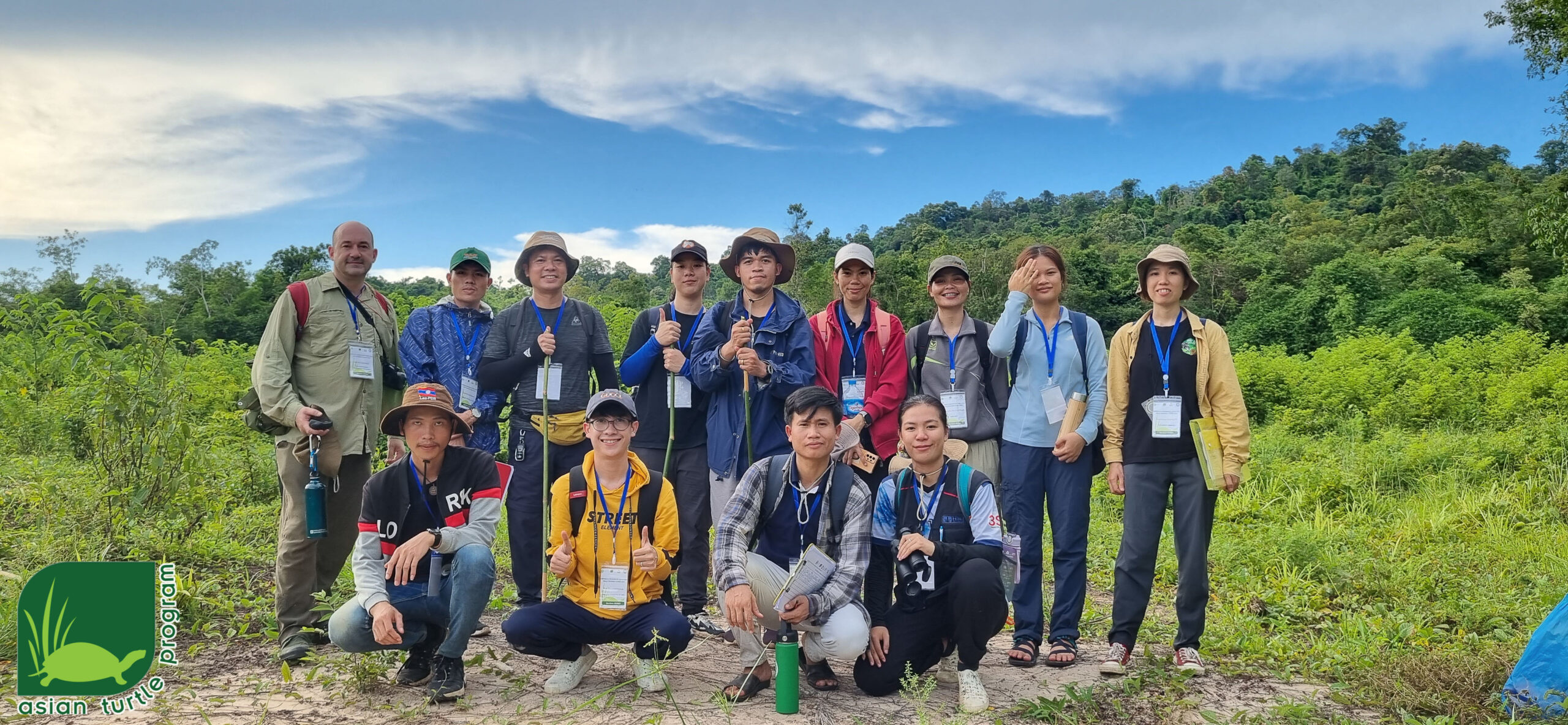
Turtles survey techniques practice in the forest in Phou Khao Kouay National Protected Area (surveying, field data collection). Photo credit: ATP/IMC/CEPF/IUCN
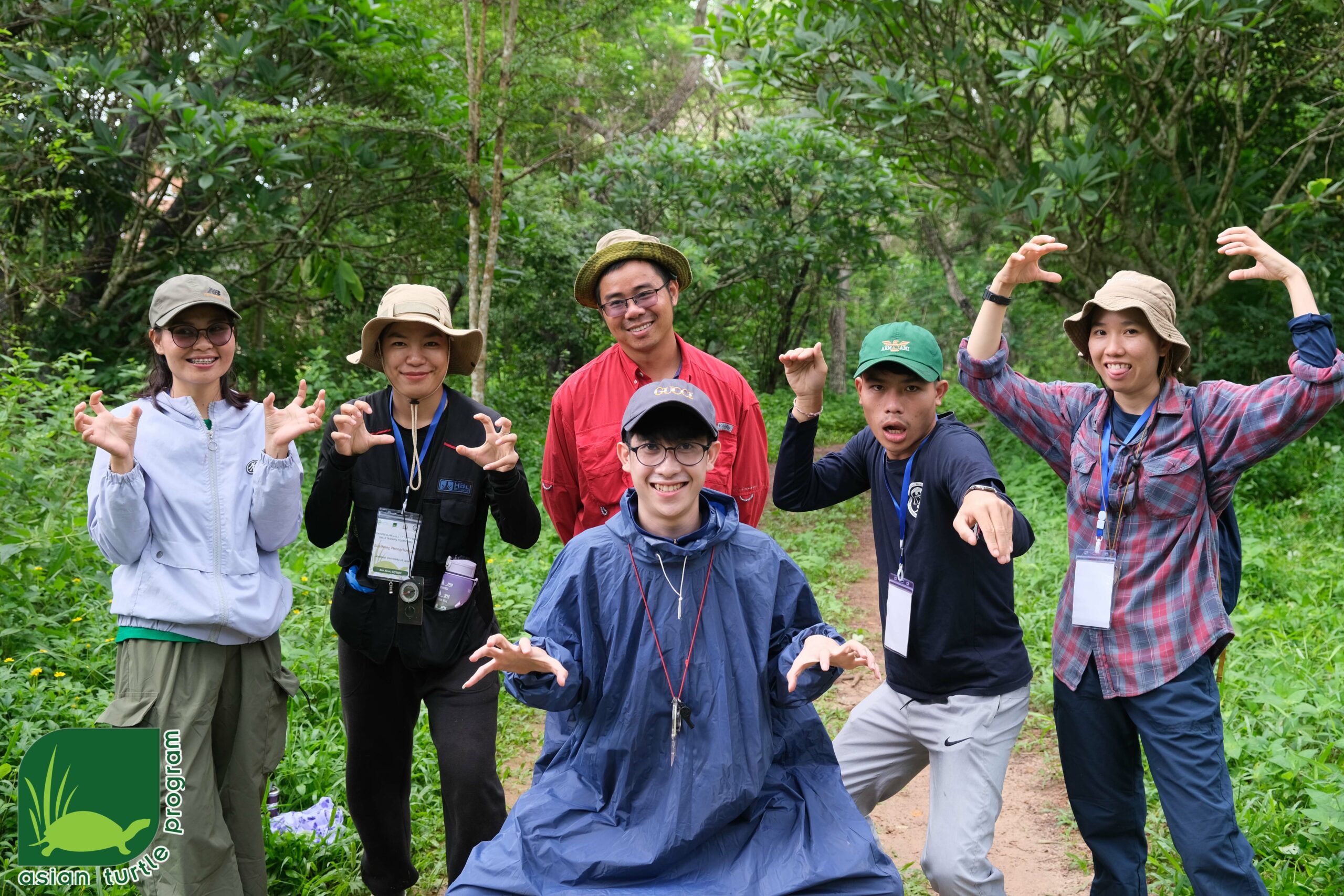
Photo credit: ATP/IMC/CEPF/IUCN
_______
About ATP/IMC
“Indo-Myanmar Conservation (IMC) is a UK-registered charity that works to prevent the extinction of the Indo-Myanmar Hotspot’s globally threatened wildlife. IMC was established in 2008 with projects in Myanmar but has now expanded to other parts of the hotspot, including a strong presence in Vietnam.We work in a variety of different ways to conserve native wildlife directly and indirectly, with a focus on species which are both highly endangered and largely restricted to this hotspot”.
About CEPF
“CEPF empowers non-governmental organizations, Indigenous groups, universities and private enterprises to protect the world’s biodiversity hotspots and help communities thrive. It is a joint initiative of l’Agence Française de Développement, Conservation International, the European Union, the Global Environment Facility, the Government of Japan, and the World Bank. In the Indo-Burma Hotspot, it is also supported by the Margaret A. Cargill Philanthropies. IUCN serves as CEPF’s Regional Implementation Team in the Indo-Burma Hotspot”.
About IUCN
“IUCN, International Union for Conservation of Nature, helps the world find pragmatic solutions to our most pressing environment and development challenges.
IUCN’s work focuses on valuing and conserving nature, ensuring effective and equitable governance of its use, and deploying nature-based solutions to global challenges in climate, food and development. IUCN supports scientific research, manages field projects all over the world, and brings governments, NGOs, the UN and companies together to develop policy, laws and best practice.
IUCN is the world’s oldest and largest global environmental organization, with more than 1,200 government and NGO Members and almost 11,000 volunteer experts in some 160 countries. IUCN’s work is supported by over 1,000 staff in 45 offices and hundreds of partners in public, NGO and private sectors around the world. www.iucn.org“
